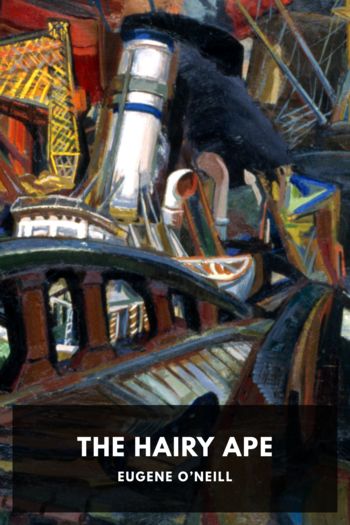The Atmospherians Alex McElroy (i like reading .txt) 📖

- Author: Alex McElroy
Book online «The Atmospherians Alex McElroy (i like reading .txt) 📖». Author Alex McElroy
“We need to get going,” he said.
“Going where?”
“I sent you an email.”
“You didn’t.” I refreshed my email hundreds of times a day, hoping someone I’d once been important to—Cassandra or Blake or Dyson—would reach out to tell me they loved me, were thinking of me, and maybe offer me work. But my inbox never held anything but knives. Harassers had begun veiling their death threats in subjects like Employment Opportunity and Wonderful Kittens and Ca$h 4 U Now.
Dyson said, “When you didn’t respond, I was convinced you hated me. But I thought: If you answer the door at eleven AM on a Tuesday, then it’s fated. And here you are. Think of everything you could’ve been doing.”
“Crying,” I said. “Watching reruns of game shows.”
“But you were home,” he said, as if no one had ever been home. “That means something. More than our little minds can truly comprehend.”
His speech reminded me of Cassandra’s meditations scripts: cheerfully empty, mindlessly mindful. “I’m done with mindful people,” I told him.
“Me, too,” he said. “Mindfulness is the swamp of aspiring quacks. Where I am—where you’re gonna be—is so far beyond mindfulness it’s a crime to even compare them.”
“Is it a crime to explain to me what you mean?”
“Long explanation or short explanation?” he asked.
“Some explanation.” I pinched my fingers together. “Even this much.”
“Promise you’ll come with me.”
“Just tell me.”
“You promise?”
The men sang We don’t want no / Sasha Marcus to the tune of Pink Floyd’s “Another Brick in the Wall.”
I promised.
“Good,” he said. “Because me and you: we’re starting a cult.”
two
TODAY, WHEN I’M asked about Dyson, everyone expects stories of a charismatic manipulator, tales reminiscent of cult leaders they’ve seen on TV. But that wasn’t his way. The Dyson I’d known my whole life didn’t persuade; he listened. When I was in trouble, he let me talk. He nodded along, encouraged my grudges and gripes—many of which emerged in the aftermath of relationships, when Dyson would trash the men I believed I had loved. More than anything, he knew how to remind me of what had brought us together.
As teenagers, we spent hours on highways singing along to moody mix CDs that he meticulously arranged. The bands were independent and neglected, far too brilliant for popular recognition. We pretended we were the only people alive who knew these songs existed—not even the bands, we joked, knew of their songs. Dyson transferred the contents of the mixes onto a massive playlist for the drive. By now, nearly a dozen years later, these songs frequently played in car commercials or life insurance ads or over tinny speakers at corporate bagel shops, and although hearing these songs in public, reduced to jingles and Muzak, filled me with the shame of crossing paths with an ex, hearing them that day, with Dyson, I fell quickly into singing along. We both had good voices, though mine was better, and he knew when to silence himself to prevent the timid lilt of his voice from holding me back. The playlist was an attempt to blot my mind with nostalgia, to distract me from wondering where the hell we were headed. It nearly worked, too. But once we got out of the city, I asked Dyson where exactly we were going. “My grandparents’ place,” he answered, then turned up the music to signal he wouldn’t say any more. I welcomed the distraction. For the first time in months, I felt unburdened.
I mistook this feeling for safety.
An hour into the drive, Dyson stopped at a towering three-story mall to stretch his legs. He straightened his arms against the roof of the car, resting his weight on one leg and swinging the other pendulum-like in front of his body, as if preparing for a race. I lounged on the trunk, swallowing the sky with my eyes.
A few rows away from our car, in an empty corner of the parking lot, five white men crowded around a station wagon raised on a jack. They were changing the rear passenger-side tire in total silence—not one mumble of small talk—working via some ant-like understanding of the task, passing tools and unscrewing bolts, dropping screws into the cupped palms of their partners, cradling the spare like a child. Two of the men wore torn T-shirts and sweatpants and had the foggy, undershaven faces of the terminally unemployed. The other three men must’ve come from work, two in khakis and button-downs, the last one wearing fashionable jeans and the black employee polo of an electronics store. I was too far away to see their eyes—in news reports, their eyes had been described as gluey, dulled—and I would’ve inched closer were it not for the woman behind the wheel. She slapped her window and shouted, “Leave me alone!”
Her fear of the men gave me reason to fear them.
Dyson took a step toward the car. “I’ve never seen a man horde in person,” he said.
I hadn’t, either. “Can’t you hear that woman screaming?” I asked, hoping to minimize his curiosity, and mine. I didn’t want to get involved.
“Maybe we ought to go help her.”
“There was the one in New Hampshire, last week, who chopped down the trees in front of the courthouse. They might have weapons for all we know.”
Over the past year, more and more men—always white men—had been hording together unprompted to perform mundane social activities. There





Comments (0)